Stress can manifest in the body in many different ways. While some may notice trouble sleeping, others may experience changes in their eating habits along with various other symptoms often associated with stress, too. When stress is prolonged over a period of time, weight gain may also be seen as a result. While the mechanism behind stress-triggered weight gain is multifaceted, there are a few notable contributors, many of which are linked to hormonal changes.
Hormone changes due to stress can have a cascading impact on the body that can affect weight, sleep, and more. More notably, cortisol is a hormone that is released in your body during periods of stress. This is why cortisol is often referred to as the "stress hormone." However, cortisol does serve many other functions in the body, including regulating blood pressure and blood glucose as well as aiding in your circadian rhythm. The relationship between stress and weight gain is well documented, and research indicates higher levels of cortisol often are associated with abdominal obesity.
While bodies of research have linked cortisol levels to weight gain, the driving forces behind this association are numerous. One reason why cortisol may lead to weight gain is because this hormone can increase blood sugar. There is also evidence high cortisol levels can increase appetite, which increases the potential for overeating. Lastly, cortisol also influences metabolism and energy expenditure, further impacting weight.
With several layers of influence, it is no wonder higher cortisol levels can lead to weight gain. While stress management should be priority, your food choices can also impact and help manage your weight during periods of stress. To best avoid stress-triggered weight gain, here are six healthy foods you should consider stocking up on.
Fruits
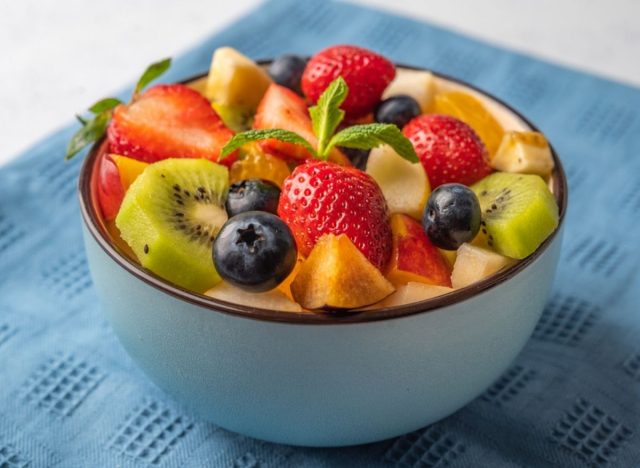
Research suggests a diet high in added sugar, refined carbohydrates, and saturated fat may lead to higher levels of cortisol compared to eating a more well-rounded diet of fruits, vegetables, whole grains, and unsaturated fats. While this research is convincing enough to encourage higher intake of fruit to avoid stress-related weight gain, there are a few other reasons to eat more produce. Fruit is a source of fiber, a satiating nutrient that may be able to combat an increased appetite related to stress. It is also a relatively low-calorie food, so you can consume a hearty portion without contributing too many calories to your day.
Vegetables
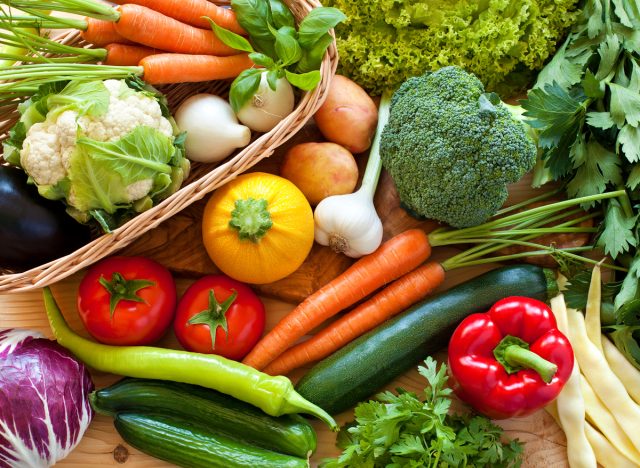
Similar to fruit, vegetables are a source of fiber that can help you feel fuller, longer. Because an increased appetite and overeating have been documented in relation to stress, high-volume, fiber-rich foods may be beneficial in combating weight gain. Many vegetables provide very few calories and grams of carbohydrate, making them a great choice for snacking and adding bulk to meals. Additionally, the fiber found in vegetables can aid in digestive regularity and certain veggies support the good bacteria in your gut that have been linked to better mental health.
Whole grains
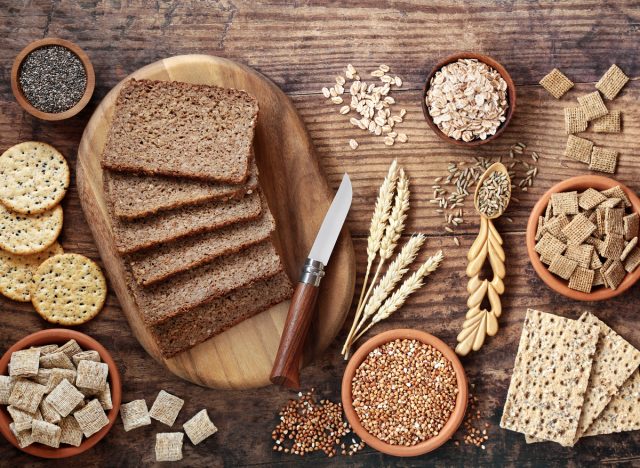
This category of food includes, oats, brown rice, quinoa, whole grain bread, and so many other common foods you may already have in your pantry. While whole grains contain fiber to aid in satiety, they also contain a specific form of fiber that supports the beneficial probiotic bacteria found in your gut. This fiber is also known as a prebiotic, and supplements of this nutrient have been found to reduce stress response within the body. With two beneficial forms of fiber found in whole grains, they have a layered benefit when it comes to reduced stress-related weight gain.
Legumes
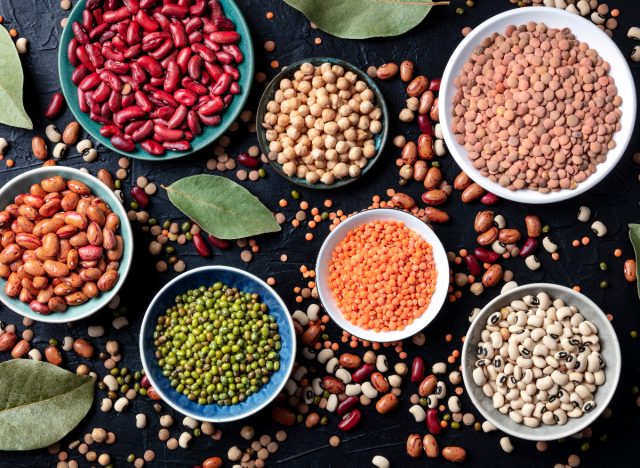
Another category of food with impressive fiber amounts, beans and lentils are notable for their fiber benefits that include digestive regularity and prebiotic functions. While these foods may not be as easy to eat in a pinch compared to fruits, veggies, and whole grain, they can be incorporated into your diet in many different ways. Add legumes and lentils to your favorite soups and salads, enjoy them as a side dish to your protein and veggies, and mash them into a spread to smear on toast or dip with veggies.
Yogurt
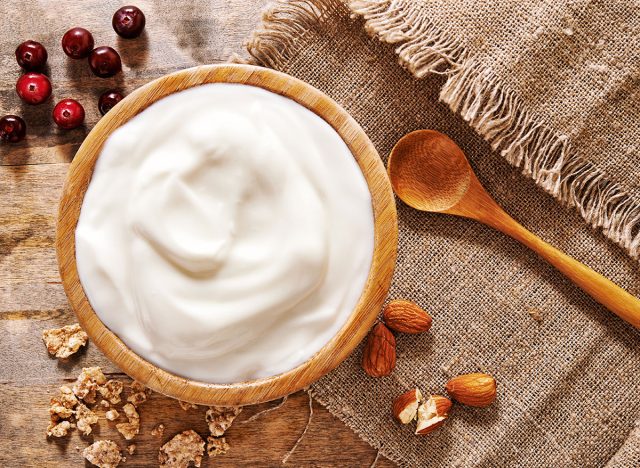
While the previous few foods are notable for their fiber benefits and important prebiotic functions, yogurt is one food source that contains probiotics, the healthy bacteria that live in your gut. Because stress can impact mental health, it is important to choose foods that can support your mental and physical well-being during periods of higher stress. While yogurt may not be able to reduce cortisol levels, the probiotic it contains may be able to improve mood and lower stress and anxiety levels. These improvements could result in less weight gain related to stress.
Fish
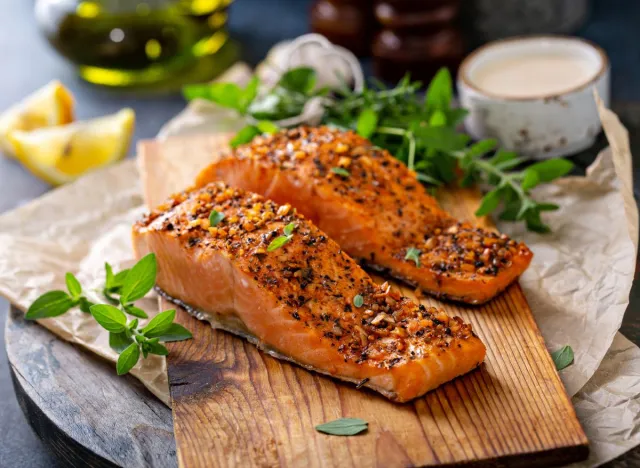
All forms of fish serve as an excellent source of protein, and some varieties also contain healthy omega-3 fats. Salmon and tuna, in particular, contain this nutrient that is thought to aid in the body's response to stress. In addition, omega-3 fat appears to improve mental health, a component of well-being often impacted by stress. While the unique fats found in fish can aid in stress and mental health, the protein it contains can also improve satiety which could offset overeating, and consequential weight gain.
No comments:
Post a Comment